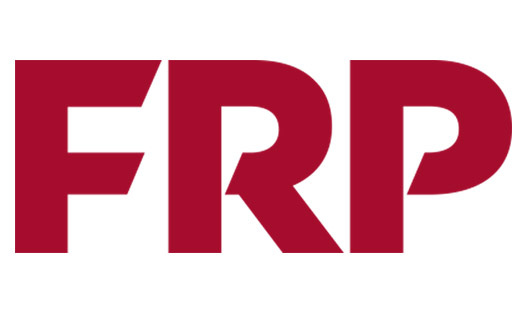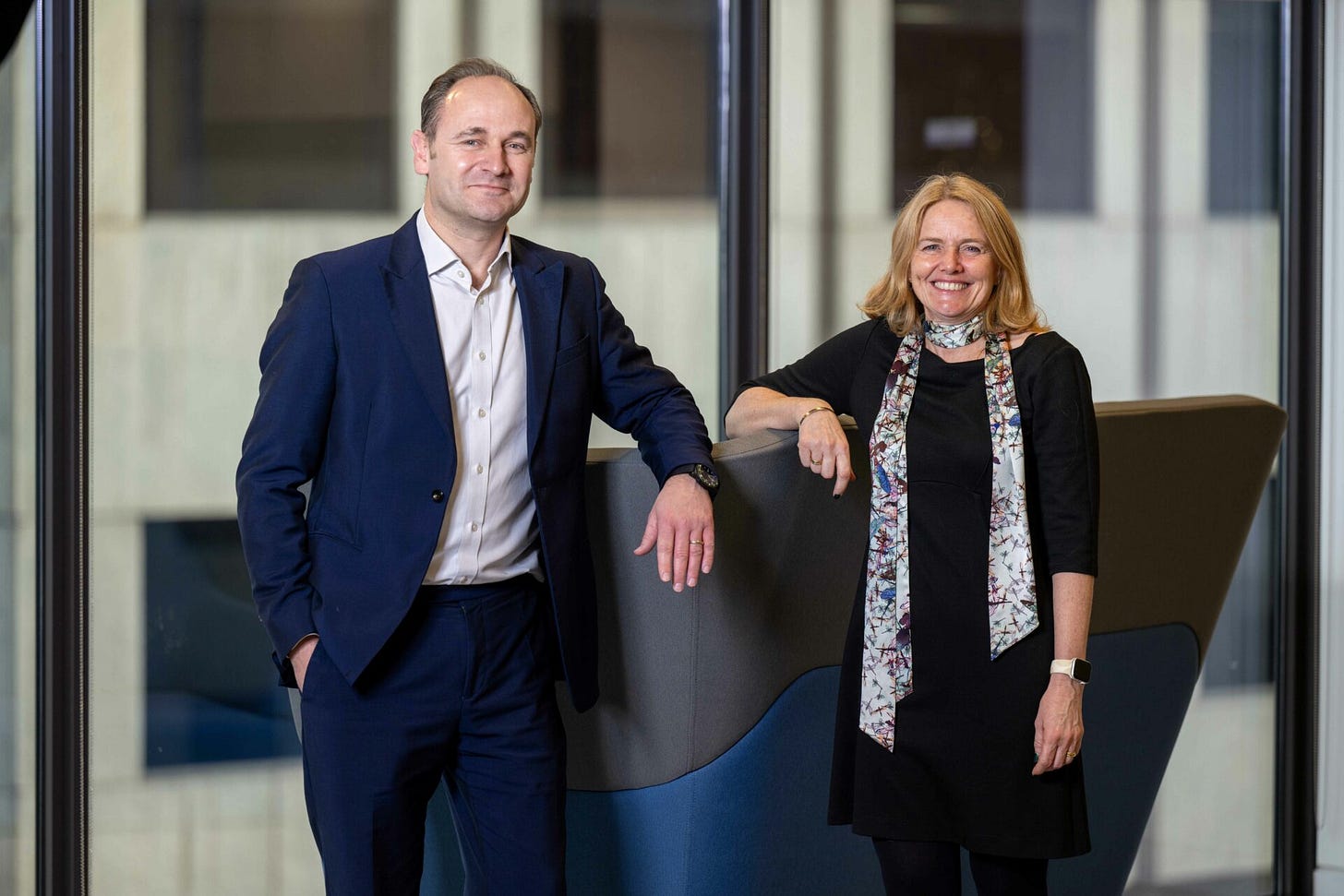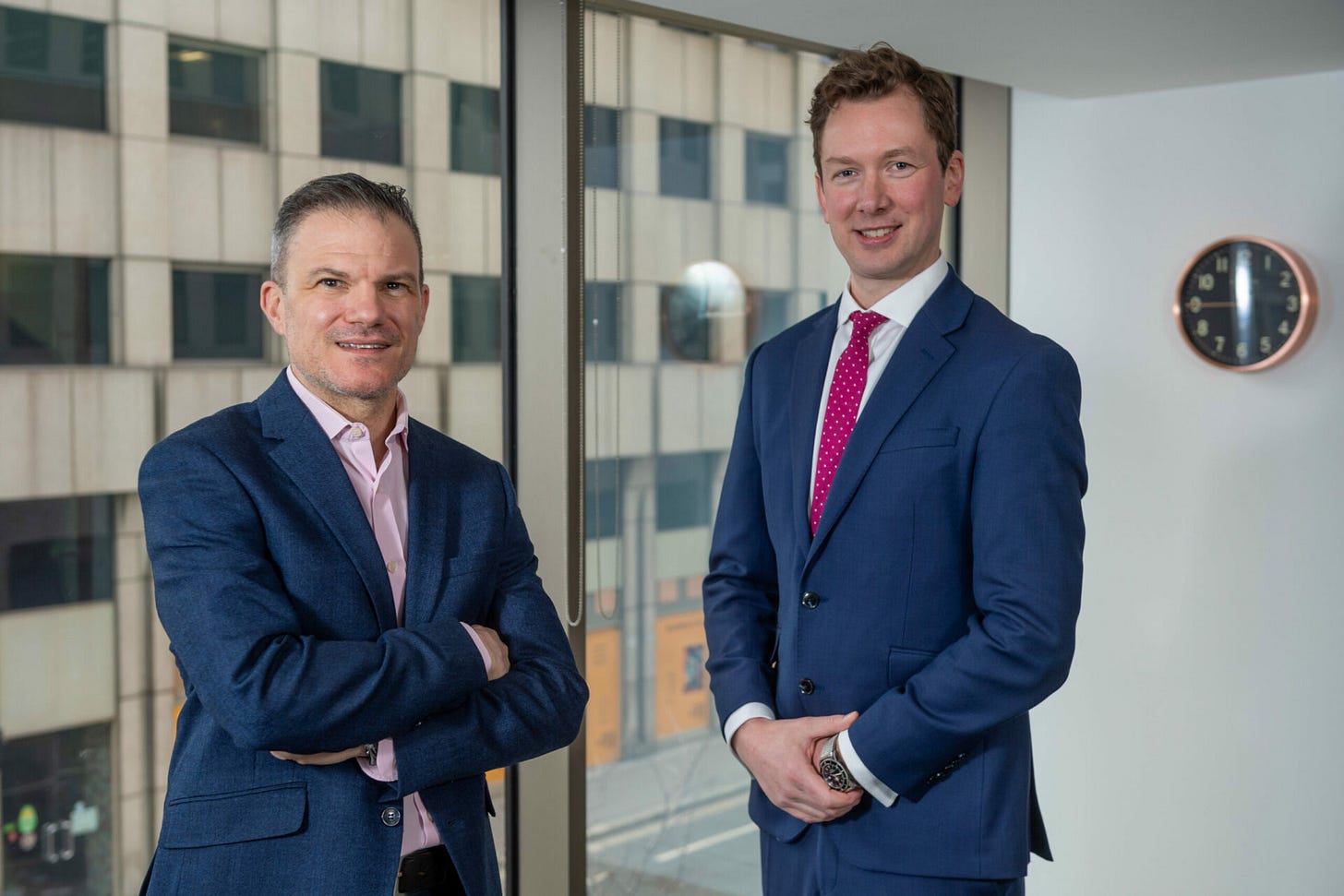Disclaimer: This newsletter is not financial advice; it is for educational purposes only. Please DO NOT take this newsletter as a buy or sell signal.
FRP Advisory Group Fundamentals:
Below is a checklist I normally use when analysing a company’s fundamental health. If the company meets my criteria, it will be colour-coded in green, and if it fails to meet my criteria, it will be colour-coded in red, which means I need to investigate further and ask myself why this is the case.
As you can see below, there are four red boxes, and I am going to explain each one:
Current PE Ratio/Current Price To Free Cash Flow Ratio- FRP Advisory currently has a PE ratio of 17x and a Price To Free Cash Flow Ratio of 20x, which might indicate that this company is trading at a premium to the market since the average stock market PE ratio is 15x. One thing to remember is if a company can grow 17% from now until judgment day and can sustain that growth, then the current valuation will look cheap. This goes for the opposite side of the spectrum, where if a company was trading at 15x earnings and only grew by 3% a year, that might seem expensive because the company can’t justify its valuation.
Shares Outstanding- When analysing a company, I ideally want their shares outstanding to remain the same or decrease over time. As you can see, FRP Advisory shares outstanding have increased by 11.83% in the last five years. This is something to keep an eye on because issuing shares destroys shareholder value. FRP Advisory shares have grown over time because the company makes strategic acquisitions, and they sometimes pay for these acquisitions using cash and stock, as they did when they acquired Hilton-Baird.
Free Cash Flow Yield- Free Cash Flow Yield gives investors another way to assess the value of a company. Free cash flow yield provides a better measure of a company’s performance than the PE ratio because earnings can be manipulated based on accounting rules. The most common way to calculate free cash flow yield is free cash flow divided by the company market cap. Generally, the lower the ratio, the less attractive a company is as an investment because investors are putting money into the company but not receiving an excellent return. A high free cash flow yield implies a company generates enough cash to quickly satisfy its debt and other obligations, including dividend payout. FRP Advisory’s free cash flow yield is 6%, which is lower than my 7% threshold and higher than the risk-free rate, which currently sits at 4.2%. It is important to remember that when the treasury yield is lower than a company’s earnings/cash flow, according to the intelligent investor, you are being compensated for the extra risk you are taking with an individual business, which shows there is some margin of safety with this investment.
Business Overview:
Founded in 2010 by Jeremy French and Geoff Rowley, FRP Advisory is a London-based company that offers business advisory services to a variety of clients, including companies, lenders, investors, individuals, and other stakeholders. The company provides a comprehensive range of services in corporate finance advisory, including mergers and acquisitions (M&A), strategic advisory, valuations, capital raising, special situations, partial exits, and financial due diligence. In addition to corporate finance, FRP Advisory offers debt advisory services, which include asset-based lending, raising and refinancing debt, debt amendments and extensions, restructuring debt, and corporate and leveraged debt advisory. FRP Advisory also has expertise in forensic services, which cover forensic investigations, dispute resolution, compliance and risk advisory, and forensic technology services. Furthermore, the company provides restructuring advisory services that include corporate financial advisory, formal insolvency appointments, informal restructuring advisory, personal insolvency, and general advice to various stakeholders.
Business Segments:
Corporate Finance- The FRP Corporate Finance team provides both corporate finance and debt advisory services. As the economic conditions in the UK began to stabilise and market sentiment improved throughout the year, The FRP Advisory Corporate Finance team became increasingly active, particularly in the second half of the year. FRP Corporate Finance team is ranked the 24th most active financial adviser in the UK M&A market. The team successfully managed 76 transactions, with a total deal value of £1.4 billion and raised £0.6 billion in debt. Combined with additional figures of £1.8 billion in deal value and £0.8 billion of debt raised, this represents approximately 1% market share of the UK M&A market based on the number of appointments. The average deal value for the year was approximately £20 million, reinforcing FRP Corporate Finance’s position in the heart of the lower mid-market. The sectors where The FRP Corporate Finance team was most active during the year included:
Business Services-39% of transactions
Industrials and Manufacturing-14%
Consumer Retail and Leisure-14%
Technology-12%
Additionally, there was an increase in activity in the automotive and energy sectors.
Debt Advisory- The Debt Advisory team collaborates closely with the Corporate Finance division on various projects. It also lends support to other service areas. Following the year-end, the Debt Advisory team now consists of 9 Partners, including four who recently joined from Hilton-Baird.
Financial Advisory- The Financial Advisory pillar is a crucial growth area for the Group, comprising services such as pensions advisory, valuation services, transaction services, lender services, board and C-suite advisory, and financial modelling. In the first full year of the combined Financial Advisory pillar, the team achieved positive trading results, with increased activity across all service lines. There was a high demand for due diligence services due to the current risk environment, and transactions saw an uptick as buyers and lenders became more active. Valuation specialists were involved in both mainstream projects and in preparing valuations to support restructuring plans and schemes of arrangement. Additionally, pensions advisory specialists worked closely with trustees and corporates, particularly those looking to buy out schemes with insurers and those navigating the evolving regulatory landscape. Overall, the Financial Advisory team consists of seven partners.
Forensic Services- The Forensic Services team had a busy year, managing a wide array of high-profile investigations and litigation/arbitration disputes. To meet the growing demand for their services, they hired new colleagues across multiple locations, including two lateral partner hires, to strengthen their capabilities in investigations and enhance their focus on private client assignments. The team handled a substantial number of investigations, often involving allegations of fraud, with clients requesting independent investigations typically prompted by concerns from auditors. They utilised both forensic accounting and forensic technology skills across many cases, leveraging teams from various offices. Additionally, there was an increase in contentious insolvency projects requiring forensic accounting and technology expertise. Over the past year, the team expanded significantly. They recruited forensic accounting professionals in multiple locations and promoted several team members, including one who was elevated to partner. As a result, FRP’s Forensic Services team now comprises five partners.
Restructuring Advisory- Throughout the year, sustained interest rate rises, inflationary pressures, higher living costs, and a lack of market confidence continued to adversely affect businesses. As a result, the total number of company administrations increased by 22%, with the Construction and Retail sectors being the most significantly impacted. One of the primary challenges for companies in this environment has been the difficulty in raising financing, as lenders have become more cautious regarding risk. While there are emerging positive signs in the economy, many businesses are likely to continue facing obstacles this year and beyond as they navigate higher borrowing costs and increasing overall expenses. FRP’s Restructuring team, which provides corporate finance advisory services, formal insolvency appointments, informal restructuring advisory, and personal insolvency support, has been active nationwide and across various sectors. Notable high-profile appointments include The Body Shop, WiggleCRC, Inland Homes PLC, Just Cashflow, and Readers Digest. Additionally, the team has been engaged in many mid-sized, high-quality projects throughout the UK. FRP has reinforced its leading position in the administration market, remaining the most active administration appointment taker in the UK by volume of appointments, and has increased its market share to 16% (up from 14% in 2022). Growth has also continued in the higher volume liquidations market, which typically consists of lower value and less complex cases. Currently, FRP’s Restructuring team comprises 63 partners.
Management:
When evaluating management, I judge the CEO based on several factors, such as experience, capital allocation skills, and Incentives. In this section, I will discuss whether management incentives are aligned with shareholders.
Experience- Geoffrey Paul Rowley has served as the Chief Executive Officer of FRP Advisory Group since March 2020 and has been an Executive Director since November 14, 2019. In addition to his management responsibilities, he specialises in corporate restructuring assignments for various stakeholders, including boards, lenders, and investors. He is a certified accountant and a licensed insolvency practitioner with prior experience at RSM Robson Rhodes and PKF. Geoffrey Rowley is a partner in the London restructuring advisory team and was a joint founder of the team as part of the Vantis PLC management buyout in 2010. He became a Partner at FRP Advisory LLP in June 2010 and previously worked at PKF from May 1998 to December 2001. He completed his A-levels at Upton Grammar from 1983 to 1989.
Below is an image illustrating the current experience of FRP Advisory board members:
Capital Allocation- When judging management, capital allocation is very important because I want them to create value for shareholders, not destroy it. So far, FRP Advisory has done a great job with capital allocation. They are providing value back to shareholders by reinvesting in the business to improve their product line and paying dividends.
FRP Advisory currently pays a dividend with a yield of 3.31%. This dividend is sustainable because it only covers 50% of the company’s free cash flow.
Incentive- This is important because if the current board is buying shares of their own business, it indicates that management believes the stock is undervalued and has confidence in the company’s long-term prospects.
As you can see below, we have one buy order and one sell order. Penelope Judd(Non-Executive Chair) is the only insider buying FRP Advisory shares. As for selling, Christian Chubb(Senior Independent Non-Executive Director) is the only insider selling FRP Advisory shares, but I am not going to put too much weight into this because there are so many reasons why someone might sell their stock.
Bull And Bear Case:
Bull Case
Bull Case- The first bull case is to create shareholder value by reinvesting in the business at a high rate. Expanding through carefully considered acquisitions has long been a key part of FRP’s strategy. Their overarching aim remains the same: to generate sustainable, profitable growth through a combination of high-quality organic growth and selective acquisitions. They will only consider acquiring businesses that align culturally and strategically and only on commercial terms that are acceptable to both parties. By adhering to these strict selection criteria, they have significantly expanded their company in recent years. This has allowed them to establish a larger geographical presence, gain market share, and broaden their client service offerings.
Bull Case- The second bull case is the company’s balance sheet. FRP Advisory has a strong balance sheet, with £32 million in cash and only £3 million in debt. This financial flexibility allows the company to effectively pursue its growth strategy and invest in key areas such as acquisitions, recruitment, organic growth, and improvements in infrastructure, marketing, and central services.
Bear Case
Bear Case- The first bear case is the company’s relationship. FRP Advisory relies significantly on its referral network to generate business. These relationships, which are managed by the Partners, are essential for revenue generation. The advisory firm is included on the formal approved panels of all major UK clearing banks, as well as various regional and national lenders, including asset-based lenders, investment banks, credit funds, and peer-to-peer lenders. If these relationships are not managed and grown effectively, or if key partners responsible for maintaining them depart, the firm may not secure new advisory panel positions or could risk not being reappointed to existing ones. Such outcomes could damage the firm’s reputation and adversely affect its ability to generate revenue, ultimately impacting its financial performance and overall position.
Bear Case- The second bear case is acquisition risk. As part of the company’s strategy, they aim to acquire teams and businesses to enhance their operations. However, there are risks associated with these acquisitions. They may not yield the expected returns or may struggle to integrate effectively into the company’s culture and systems. Such challenges can lead to lower-than-anticipated investment returns, excessive management time spent on integration, and, ultimately, the failure of the acquisition. This could result in wasted costs, lost opportunities, and potential damage to their reputation.
Valuation:
In this section, I will discuss the company’s valuation. Using some basic metrics, I will compare FRP Advisory against its industry rivals and see if it is cheap relative to its peers. Then, I will value FRP Advisory using a discounted cash flow model to determine a price I will pay based on the expected growth rate and my desired return of 15%.
As shown below, when compared to its peer, FRP Advisory scores 2/5, whilst Begbies Traynor Group scores 3/5.
I like both companies. The difference between FRP Advisory and Begbies Traynor Group is:-
Service Range
FRP Advisory-Offers corporate recovery, business advisory, debt advisory, and financial restructuring.
Begbies Traynor Group- Primarily focused on insolvency services, it also provides corporate finance and recovery services.
Approach
FRP Advisory- Emphasises a proactive turnaround approach, working closely with management teams.
Begbies Traynor Group- Focuses more on statutory insolvency procedures and formal solutions.
Market Presence
FRP Advisory- A newer firm with a broad national presence in the UK.
Begbies Traynor Group- Established for a longer time with a strong reputation and wide network.
Client Types
FRP Advisory- Works with a range of clients, from SMEs to large corporations, for tailored advisory.
Begbies Traynor Group- Tends to work more with distressed businesses in financial crisis situations.
As you can see, based on my conservative assumption, FRP Advisory is looking to grow 8%, so I went conservative and assumed a 6% growth in the first 1-3 years, then the growth will slow down to 3% 4-6 years out. In my assumption, I also went with an exit multiple of 15x earnings, which is below the historical average at which FRP Advisory has traded. Based on my assumption, I have come to a buy price of £1.27p compared to the current stock price of £1.51, which means right now, FRP Advisory is trading above its intrinsic value.
Thanks for reading my newsletter on FRP Advisory. Disclaimer: This newsletter is not financial advice. This is for educational purposes only, so please DO NOT take this as a buy or sell signal.
Follow for more:
Don’t forget to subscribe, share, and comment below if you find this newsletter insightful, as it helps support my work.















Wesley, not to be picayune, but it is not necessarily true that issuing shares destroys SH value over time - it depends. If a company is issuing shares but in turn can reinvest those funds at a return greater than the required return on its shares, then it is creating and not destroying shareholder value. It is true that for a company with a declining share count, ceteris paribus, each share will represent a greater ownership % of the company and more FCF / share.
Thanks, but why assume such a low growth rate?